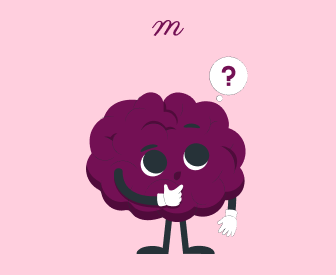Have you ever stopped to ponder how your remarkable brain works? Neuropsychological testing can provide fascinating insights into your cognitive abilities, like memory, attention, and problem-solving skills. Imagine it as a thorough checkup for your brain, empowering you with a deeper understanding of your cognitive strengths and areas for improvement. It's beneficial for anyone, whether you've had a head injury or you're just looking to boost your focus. There is no need to prepare – bring yourself and get ready for a mind-expanding experience. In this guide, we'll talk in detail about neuropsychological testing, exploring its origins, purpose, and important role in improving mental health.
Neuropsychological Testing History
The journey of neuropsychological testing is not just compelling, but deeply rooted in history. It began in the 19th century with pioneers like Paul Broca and Carl Wernicke, who made groundbreaking discoveries about brain regions involved in language processing. This historical backdrop provides a crucial context for the field's evolution, including its use in assessing cognitive impairments in soldiers during the World Wars. By the late 20th century, advancements in neuro-imaging technologies revolutionized neuropsychological assessments, allowing for more precise correlations between brain structures and cognitive functions.
What Neuropsychological Testing Entails
Neuropsychological testing is a comprehensive examination that delves into various cognitive domains such as memory, attention, language, executive function, and visuospatial skills. This type of assessment is critical for identifying cognitive deficits associated with neurological conditions like traumatic brain injury, stroke, dementia, or developmental disorders. For mental health professionals, neuropsychological testing provides invaluable insights beyond standard clinical interviews by offering a detailed picture of a client's cognitive strengths and challenges.
Reflect:
How could neuropsychological testing refine your diagnostic accuracy and enhance the effectiveness of your treatment strategies?
The Objectives of Neuropsychological Testing
Neuropsychological testing serves two primary purposes:
Behavioral Insight:
Neuropsychological testing assesses how brain function affects behavior, particularly in cases where symptoms are challenging to diagnose through clinical observation alone. For example, testing can help determine whether memory problems result from normal aging, mild cognitive impairment, or early-stage dementia.
Treatment Guidance:
The results of neuropsychological tests play a crucial role in shaping treatment plans. Mental health professionals can tailor interventions to meet individual needs by identifying cognitive challenges. For instance, cognitive-behavioral therapy (CBT) can be personalized to assist a client with executive function deficits in developing better organizational and problem-solving skills. This personalized approach empowers the professional and the client, leading to more effective interventions.
Consider:
How might neuropsychological testing enhance your ability to create personalized treatment plans, reassuring your clients that their unique cognitive needs are being addressed?
A Closer Look at Neuropsychological Testing: What Happens During the Assessment
The neuropsychological testing process is thorough and can take several hours to complete. It starts with a detailed interview to discuss the client's medical history, current symptoms, and other relevant background details, laying the groundwork for the testing phase.
Various standardized assessments are used to evaluate different cognitive functions during the testing. For instance, the Wechsler Adult Intelligence Scale (WAIS) measures general intellectual abilities, the Rey-Osterrieth Complex Figure Test (RCFT) assesses visuospatial and memory skills, and the Wisconsin Card Sorting Test (WCST) helps understand executive functioning.
After the testing, the results are carefully interpreted, considering the client's unique background and current functioning. The neuropsychologist then compiles a detailed report presenting the findings and offering practical recommendations for treatment and potential areas for further evaluation.
This approach ensures that the insights gained from the testing are highly relevant and can be directly applied to enhance the client's care.
Ponder:
How might a detailed neuropsychological assessment report influence your approach to complex cases?
Real-World Applications: Case Studies in Neuropsychological Testing
To see the practical benefits of neuropsychological testing, consider these real-world examples:
Case 1: ADHD in a Child
A 10-year-old boy struggles in school, particularly with attention and task completion. His parents suspect ADHD. Neuropsychological testing reveals significant challenges in sustained attention and working memory, aligning with an ADHD diagnosis. These results inform a treatment plan that includes behavioral interventions and educational accommodations.
Case 2: Traumatic Brain Injury in an Adult
A 35-year-old woman suffers a traumatic brain injury (TBI) in a car accident, leading to issues with memory, attention, and problem-solving. Testing confirms impairments related to the TBI, guiding a rehabilitation plan focused on cognitive rehabilitation therapy.
Case 3: Dementia in an Older Adult
An 80-year-old man's increasing forgetfulness and confusion prompts his family to seek help. Neuropsychological testing reveals significant memory and executive function deficits, suggesting Alzheimer's disease. The results guide the family and healthcare team in making informed care decisions.
Think About:
How could these examples inform your approach to similar cases in your practice?
Technology's Role in Modern Neuropsychological Testing
With technological advances, neuropsychological testing has become more efficient and accurate. Computerized testing allows quicker administration and scoring, reducing human error and providing precise measurements. Meanwhile, neuro-imaging technologies like functional magnetic resonance imaging (fMRI) and positron emission tomography (PET) scans offer new ways to visualize brain activity and its relationship to behavior. Artificial intelligence is also beginning to play a role, helping to develop predictive models that identify cognitive decline patterns early. These innovations promise to revolutionize the field, making neuropsychological testing more accessible and precise.
Reflect:
How do you see AI and neuro-imaging technology influencing the future of neuropsychological testing in your practice?
Debunking Myths: Common Misconceptions About Neuropsychological Testing
Despite its benefits, neuropsychological testing is often misunderstood. Some believe it's only necessary for those with severe cognitive impairments, but it can be valuable for anyone experiencing subtle cognitive changes. Others confuse it with IQ testing; however, neuropsychological testing offers a detailed assessment of specific cognitive functions like memory and attention, providing a more comprehensive understanding of an individual's mental processes.
Consider:
Do misconceptions about neuropsychological testing arise in your practice? How might clearing these up improve client outcomes?
Why Mental Health Professionals Should Embrace Neuropsychological Testing
For mental health professionals, integrating neuropsychological testing into practice offers significant benefits. It enhances understanding of a client's cognitive and emotional functioning, leading to more accurate diagnoses and targeted interventions, improving client outcomes and satisfaction. Additionally, neuropsychological testing is a valuable tool for tracking progress, allowing professionals to measure cognitive changes over time and adjust treatments as needed.
Ask Yourself:
How could neuropsychological testing become a regular part of your practice to enhance client care?
The Future of Neuropsychological Testing: What Lies Ahead?
Technological advancements are poised to shape the future of neuropsychological testing. The potential for remote assessments, real-time data analysis, and integrating neuropsychological data with other health metrics could make testing more efficient and accessible. AI and machine learning could be more significant in interpreting results and uncovering patterns that may elude human clinicians. However, as with any technological innovation, mental health professionals must critically evaluate these tools and consider their ethical implications.
Brainstorm:
What are your thoughts on the future of neuropsychological testing? How might emerging technologies impact your approach to client care?
Conclusion
Neuropsychological testing is a powerful tool that offers invaluable guidance for the diagnosis and treatment of mental health. These assessments can lead to more effective mental health treatment strategies by revealing brain-behavior relationships. Whether you're a mental health professional seeking to incorporate these tests into your practice or an individual interested in your cognitive health, neuropsychological testing provides a comprehensive understanding of the mind. It's not about identifying weaknesses but leveraging strengths and creating strategies for a healthier, more fulfilling life.
The potential of neuropsychological testing is limitless. With advancing technology, the future of these assessments looks promising, offering even more precise and personalized insights. Whether your clients are searching for answers, validation, or a deeper understanding of their cognitive abilities, neuropsychological testing is a crucial step toward uncovering the mysteries of the mind.
Are you ready to enhance your practice? Imagine saving valuable time on documentation while maintaining your full focus on your clients. With Mentalyc's AI services, you can elevate your progress note writing to the next level. Take advantage of a free trial today and experience the possibilities firsthand!
Neuropsychological Testing FAQs: Your Top Questions Answered
Still curious about neuropsychological testing? Let's address some common questions.
What exactly is neuropsychological testing?
Neuropsychological testing assesses cognitive functions, including memory, attention, language, and problem-solving skills. It provides an in-depth understanding of different brain aspects to identify cognitive strengths and weaknesses.
Who might benefit from this type of testing?
People with trouble with their thinking abilities may find it helpful to undergo neuropsychological testing. This includes individuals who are suspected of having brain injuries, memory issues, or learning disabilities, as well as those with conditions such as ADHD, dementia, or mood disorders that could impact their thinking abilities. Testing can offer valuable insights that can help guide treatment and support strategies.
How long does the testing process take?
Neuropsychological testing can take several hours and may happen over multiple sessions to ensure that all relevant cognitive domains are thoroughly assessed. This detailed process leads to more accurate and helpful results.
What should clients expect during the testing?
During the testing, individuals complete tasks that assess various cognitive functions, such as puzzles, memory exercises, and problem-solving activities. These tasks provide a clear picture of how the brain processes information. It's important to note that there are no right or wrong answers; the goal is to understand cognitive functioning comprehensively.
How are the results used?
Neuropsychological testing results are utilized to diagnose conditions, create customized treatment plans, and track cognitive changes. These findings play a critical role in guiding therapeutic interventions and making well-informed decisions about care and support, ultimately enhancing the quality of life for individuals affected.
Resources:
Canham, R., Smith, S., & Tyrrell, A. (n.d.). Automated Scoring of a Neuropsychological Test: The Rey Osterrieth Complex Figure. https://www.researchgate.net/publication/221594112_Automated_Scoring_of_a_Neuropsychological_Test_The_Rey_Osterrieth_Complex_Figure
Proceedings of the 26th Euromicro Conference. EUROMICRO 2000. Informatics: Inventing the Future, 2, 406-413. https://static.aminer.org/pdf/PDF/000/194/736/automated_scoring_of_a_neuropsychological_test_the_rey_osterrieth_complex.pdf
Casaletto, K. B., & Heaton, R. K. (2017). Neuropsychological Assessment: Past and Future. Journal of the International Neuropsychological Society, 23(9-10), 778-790. https://www.ncbi.nlm.nih.gov/pmc/articles/PMC6296381/
Cherry, K. (2024, July 1). The Wechsler Adult Intelligence Scale: Measuring Intelligence Through Standardized Tests. Verywell Mind. https://www.verywellmind.com/the-wechsler-adult-intelligence-scale-2795283
Cleveland Clinic. (2023, November 21). Neuropsychological Testing and Assessment. https://my.clevelandclinic.org/health/diagnostics/4893-neuropsychological-testing-and-assessment
Eling, P. (2019). History of Neuropsychological Assessment. Frontiers of Neurology and Neuroscience, 164-178. https://pubmed.ncbi.nlm.nih.gov/31220853/
Harvey, P. D. (2012). Clinical Applications of Neuropsychological Assessment. Dialogues in Clinical Neuroscience, 14(1), 91-99. https://www.ncbi.nlm.nih.gov/pmc/articles/PMC3341654/
Schaefer, L. A., Thakur, T., & Meager, M. R. (2023, May 16). Neuropsychological Assessment. National Center for Biotechnology Information. https://www.ncbi.nlm.nih.gov/books/NBK513310/
Schroeder, R. W., Martin, P. K., & Walling, A. (2019, January 15). Neuropsychological Evaluations in Adults. American Family Physician. https://www.aafp.org/pubs/afp/issues/2019/0115/p101.html
Stanford Medical Center. (n.d.). What Is the Purpose of a Neuropsychology Assessment? https://stanfordhealthcare.org/medical-clinics/neuropsychology-clinic/what-to-expect/purpose-of-assessment.html
WebMD Editorial Contributors. (2022, November 5). Neuropsychological Tests. https://www.webmd.com/brain/neuropsychological-test
Why other mental health professionals love Mentalyc

“I go back and can read the notes, and it really helps me for the next session. It has made me a much better counselor.”
Licensed Professional Counselor

“I benefit tremendously every time I wrap up a session and then a few minutes later, I have this AI note. It makes me a better clinician in a variety of ways.”
LPC

“It helps align the note and the plan for moving forward with sessions … it’s been a really good aid in giving me direction.”
LPC

“It improves the quality of my work as I review my sessions … I bring a sense of continuity from session to session because of the really good summary and progress notes that Mentalyc gives me.”
Licensed Marriage and Family Therapist




